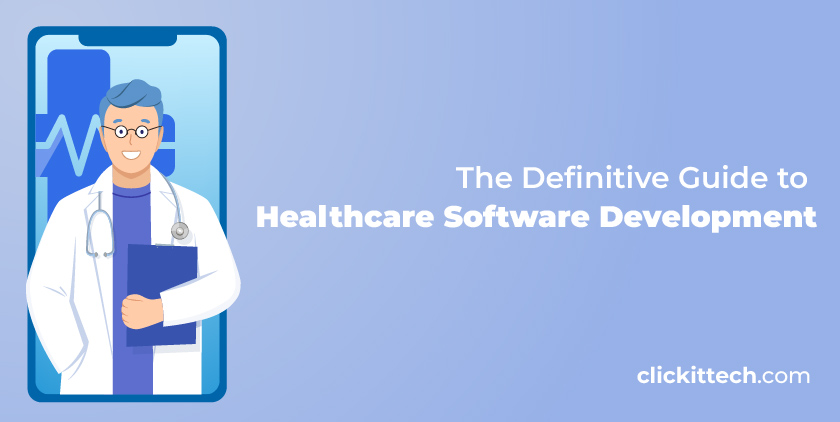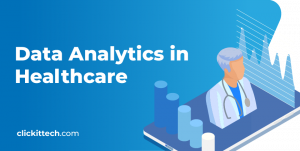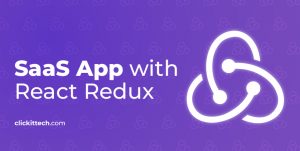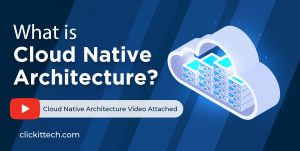Most late-year trends predicted it, and with good reason: the Healthcare Software Development market has never seen a more prosperous time than 2024. Healthcare software development companies, developers, and their services are thriving!
If you’re an avid tech-news consumer like us, you know that (at least) one new health-related app is born daily. The industry has skyrocketed, with reports estimating an annual revenue of nearly $579.40 billion. Competition is more challenging than ever.
Companies aiming to provide the best healthcare software development service should do their best to stay on top. With that in mind, we prepared this blog with the perfect armament for any brave adventurer willing to go to battle. We will discuss the greatest advantages, trends, must-haves, and steps to develop successful healthcare software, so stay around!
Software Development for Healthcare Background
In the beginning, healthcare software development focused on delivering simple systems that managed patient information. We could find basic services like electronic health records (EHRs) and other tools to cover essential administrative functions.
Over time, software development in healthcare shifted to systems that enabled communication and information sharing between professionals and patients. As technology advanced, so did the rise of decision-making tools that improved patient outcomes, as well as technologies for remote monitoring, algorithms for predictive modeling, image analysis, etc.
Today, healthcare professionals use software product development for a wide range of purposes which include: interoperability solutions, population health management and analytics, medication management systems, patient engagement, education platforms, mobile health applications, and many, many more.
Most healthcare software development services seek to improve the quality and efficiency of healthcare delivery and enhance patient results. Additionally, other objectives encompass streamlining administrative processes and enabling data-driven decision-making for healthcare providers.
- What is Healthcare Software Development?
- Advantages of a Healthcare Software Development Company
- Types of Healthcare Software
- Emerging Technologies in Healthcare Software
- Healthcare Software Must-haves
- Steps for a Healthcare Software Development
- ClickIT’s Experience in Healthcare Software Development
- Conclusion
- FAQs
What is Healthcare Software Development?
Let’s get some things straight before moving forward. The concept of healthcare software development refers to designing, creating, and implementing software solutions tailored for healthcare. Hence, these activities intend to solve problems between caregivers, patients, and organizations in the sector.
Software development for healthcare services involves using languages, frameworks, and tech tools to build apps, platforms, or systems that address the unique challenges of healthcare providers and patients. Together, they create an ecosystem where healthcare companies improve their quality and accuracy.
We can identify software services in the industry in several ways, either in clinical resources, medical equipment, or even devices to control financing for medicine. All tech development aims to leverage technology to improve healthcare delivery and contribute to better health results.
Advantages of a Healthcare Software Development Company
The proliferation of healthcare software development agencies didn’t come out of the blue. A permanently increasing demand for specified tech solutions has led the healthcare industry to realize how much of a benefit the incorporation of IT can be.
An enhancement in data analysis, improved data security, and high-quality patient care are only a few benefits a good team of healthcare software developers can provide. Furthermore, with the proper set of tech tools, healthcare professionals are one step closer to meeting the demand for medical services that only seems to be increasing.
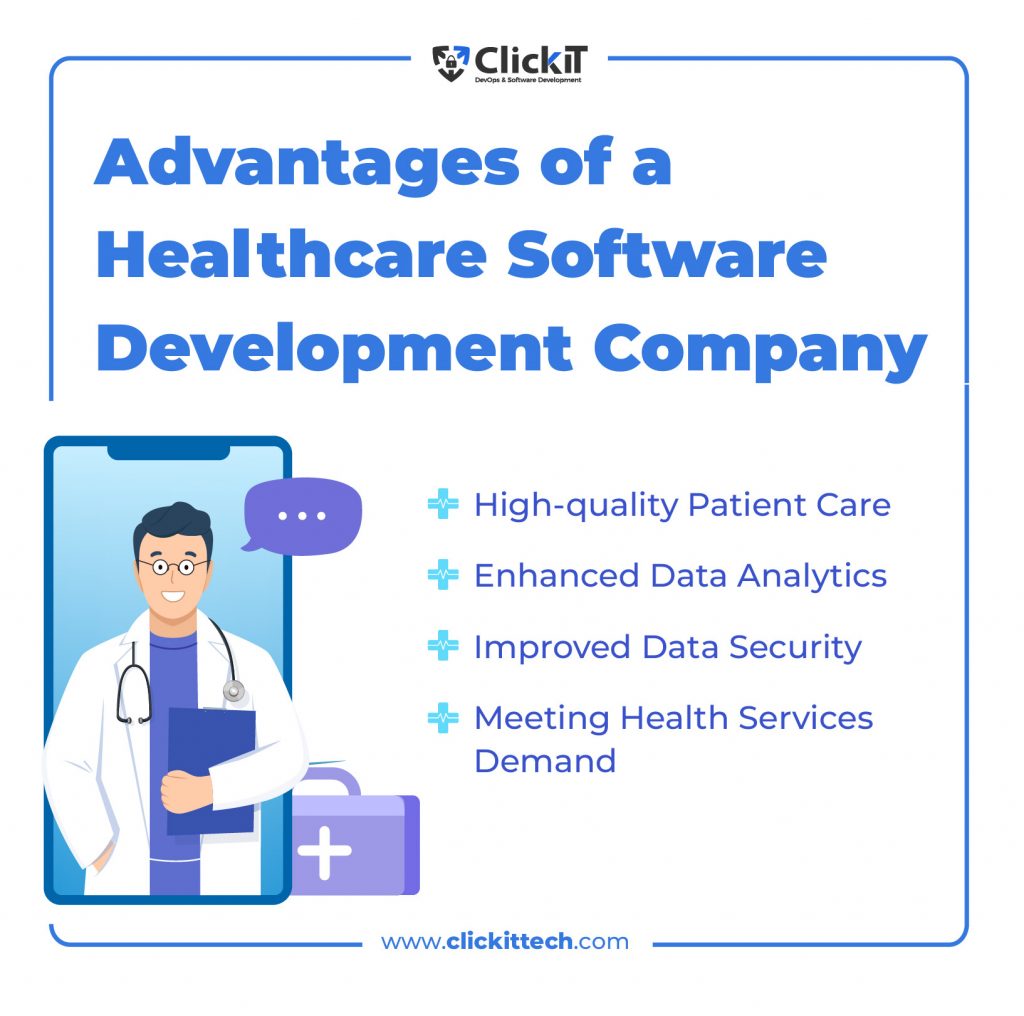
High-quality Patient Care
Software is changing how healthcare is delivered. As a result, everything from scheduling an appointment to documenting information can be included in today’s services.
Healthcare software development companies and agencies use customized software to access patient information records, track medical histories, manage medications, streamline care coordination, and other activities that ultimately improve patients’ quality of care.
Incorporating software development facilitates better utilization of healthcare resources, reduces wait times, and improves patient satisfaction.
Enhanced Data Analytics
The work of healthcare software developers facilitates medical professionals’ leveraging of advanced data analytic techniques. Said processes give medics insights into the health situation of their patients and can even be revised in large volumes of information.
As a result, the collected information gives specialists upgraded clinical decision support that helps identify patterns and outliers, leading to proactive healthcare interventions.
Improved Data Security
Healthcare software development companies possess adequate tools to tackle the sector’s critical data security and privacy needs. In fact, most developers incorporate robust security measures to protect data from unauthorized access or breaches. Examples of said security actions include: encryption, access controls, secure authentication protocols, etc.
The amount of information managed, stored, transmitted, and retrieved by medical clinics continues to reach unmatched peaks. Enterprises are more than aware of the situation; hence they foster the adoption of security practices to protect the data.
Healthcare software developers also opt to build compliance with regulations (HIPAA, GDPR, etc.) into the software development process to ensure the confidentiality and integrity of medical information.
Meeting Health Services Demand
Healthcare is and will most likely never stop being a vital societal necessity. If we think it through, its relevance has only become more and more evident in the past few years. The pandemic exhibited the industry’s demand for more efficient solutions.
Software development allows healthcare to expand its access to care and better meet its ever-high demand. For example, telehealth solutions, remote patient monitoring tools, and mobile health apps enable providers to deliver care remotely. Said instruments are also proper for reaching underserved populations and optimizing resource location.
Types of Healthcare Software Development
Most healthcare software development companies cover primary requirement functions. Nonetheless, each one encompasses a range of features and functionalities that address specific requirements in the industry. Let’s delve into the current most popular types of healthcare software development services for agencies.
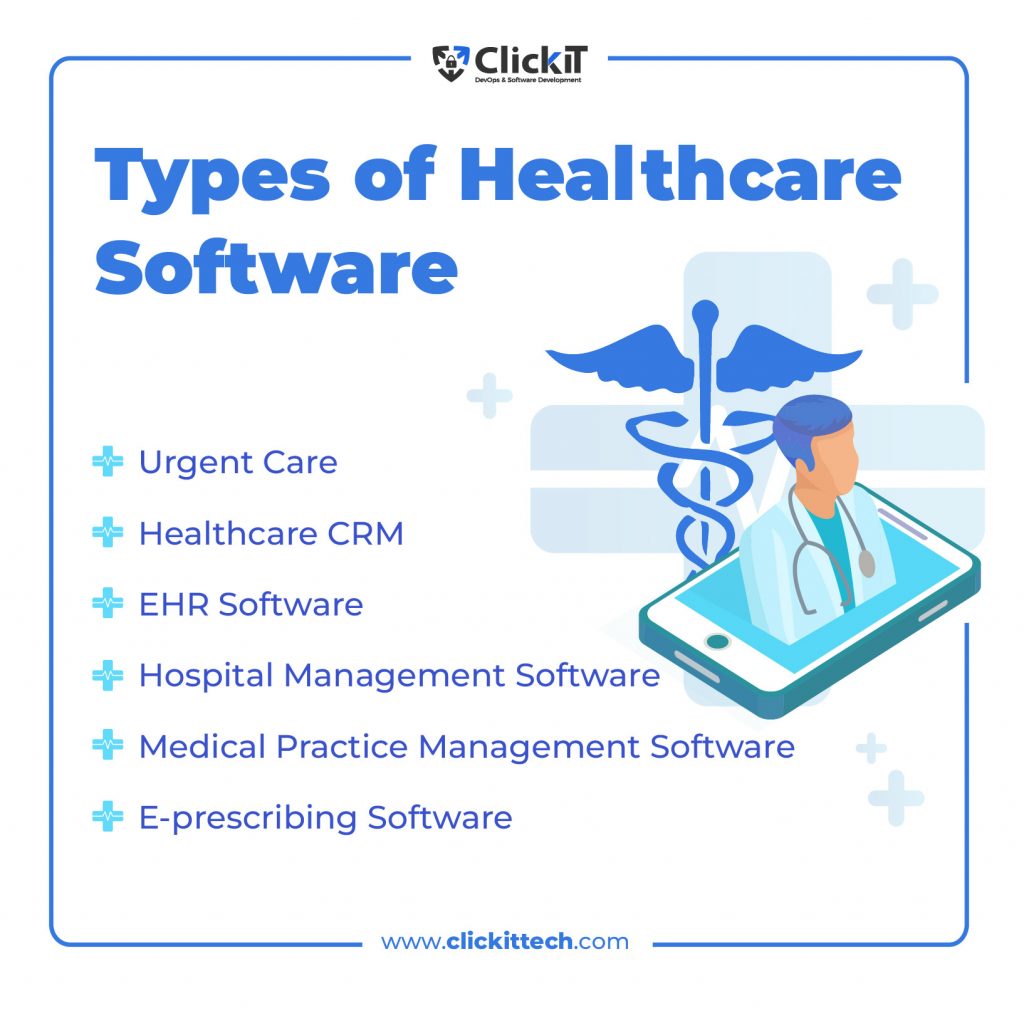
Urgent Care
This is one of the most popular initiatives of healthcare software developers as it supports urgent care clinic operations and offers numerous advantages over traditional methods.
With this type of healthcare app, patients don’t need to attend a doctor’s office to access emergency aid. They offer features such as appointment scheduling, patient triage, EMR management, billing, and even laboratory and diagnostic systems integration.
Urgent care facilities require specialized software to manage patient flow efficiently, provide timely care, and guarantee optimal attention delivery.
Healthcare CRM
Healthcare software developers craft these tools to manage relationships with patients better, contact management, improve care quality, and deliver more accurate performance reports.
Customer Relationship Management (CRM) isn’t new in the IT world; it has long been used to manage a company’s interactions and relationships with potential customers and customers. Accordingly, these systems have found their way into the healthcare industry, which uses them to enhance patient engagement and relationship management.
Centralizing patient interactions, tracking preferences, managing referrals, and personalized patient experiences are examples of activities CRM enables healthcare providers to execute.
Healthcare software developers can also integrate other applications like EHRs and scheduling systems to craft a comprehensive view of patient interactions.
EHR (Electronic Health Record) Software
With this type of healthcare software development, companies can digitally store, manage, and exchange patient medical records.
EHR software replaced traditional paper-based health records, allowing healthcare professionals to oversee patients’ information through technology. Besides, these systems provide clinicians with a holistic view of patient’s medical history that considers their medications, diagnoses, lab results, and treatment plans.
To healthcare software developers’ credit, EHRs implementation has boosted the quality of care by supplying medics with a complete picture of their patient’s situation. Furthermore, these solutions reduce medical errors, as health professionals can access vital information anywhere.
Hospital Management Software
Healthcare software development agencies can use this tool to manage multiple tasks and departments that guarantee the proper operation of a hospital. This software optimizes administrative processes, streamlines workflows, and improves the productivity of executive teams.
Users of hospital management software testify that this instrument provides a comprehensive solution to cover activities like patient registration and appointment scheduling. It can also be useful for billing and invoicing, inventory management, pharmacy management, electronic medical records, and reporting.
Healthcare software developers say understanding how these projects work is more straightforward than we believe. The software collects data from diverse sources and processes it with algorithms to generate analytics. Said analytics allow staff to improve quality or even make cost-reducing decisions.
Medical Practice Management Software
MPM is of great help to hospitals as it streamlines administrative and financial tasks of medical practices.
It offers features like appointment scheduling, patient registration, billing and invoicing, insurance claims management, and reporting. By automating administrative and financial tasks, medical practice management software allows healthcare software development companies to focus on patient care while ensuring smooth practice operations.
E-prescribing Software
The name explains a lot of what this one does. Healthcare software developers created this tool to generate and transmit prescriptions electronically, replacing traditional paper-based ones.
This approach is more efficient than the previous methods, as healthcare providers can share prescriptions with pharmacies digitally. It also reduces errors and improves patient safety.
Additionally, e-prescribing softwares allows pharmacists to track medication history without contacting the physician, optimizing the complete process. And all this thanks to healthcare software development agencies!
Read our blog Healthcare SaaS: A Medical Revolution
Healthcare SaaS App Video
Emerging Technologies in Healthcare Software
Up-and-coming healthcare software development companies must embrace and leverage emerging technologies to position themselves as industry leaders. Likewise, every enterprise seeks to deliver innovative solutions and contribute to medical delivery advancement. Keeping up with the latest trends is the way to go for healthcare software development agencies.
Incorporating technologies like AI, machine learning, and blockchain enables firms to meet healthcare organizations’ evolving needs, improve patient care outcomes, and create a strong foothold in the competitive healthcare software market.

AI
Artificial intelligence is making significant strides for healthcare software developers by offering unprecedented capabilities like medical imagining analysis, clinical decision support, and NLP.
AI algorithms are enhancing the accuracy and efficiency of medical image analysis. They identify patterns, detect abnormalities, and assist radiologists in diagnosing conditions such as tumors, fractures, and anomalies. Their help leads to faster and more precise diagnoses, which benefit the patients’ results.
On the other hand, clinical decision support systems analyze patient data, medical literature, and clinical guidelines to provide evidence-based recommendations.
Lastly, Natural Language Processing (NLP) enables computers to understand and interpret human language. This leads to algorithms transcribing medical dictation, extracting information from clinical notes, and facilitating voice recognition in healthcare software.
Machine Learning
As a subset of AI, machine learning has represented great advancements for healthcare software development companies. It mainly focuses on enabling computer systems to learn from data and make predictions or decisions without explicit programming.
Some ways machine learning is revolutionizing of healthcare software development agencies are predictive analytics, personalized medicine, and operational optimization. In the case of the first one, machine learning algorithms analyze datasets to identify patterns and make predictions. By leveraging predictive analytics, softwares can identify high-risk patients, enable early intervention, and optimize treatment plans.
That same data ML algorithm analyzed works for developing personalized treatment plans by tailoring interventions to patients’ unique characteristics. In addition, they can predict patient demand, streamline resource allocation, and optimize scheduling processes.
Read our blog about Data Analytics in Healthcare to learn more about how it can benefit you.
Blockchain
The last emerging technology in healthcare software development we will discuss is especially popular for offering secure and transparent data management. By incorporating blockchain technologies in clinical devices, healthcare software developers enhance data security, privacy, interoperability, and health information exchange.
Blockchain certifies secure and tamper-proof storage and exchange of healthcare data. Additionally, its use of cryptographic techniques protects patient data from unauthorized access and manipulation.
Healthcare software development companies incorporating blockchain technologies have a secure and seamless sharing of health information across healthcare systems and providers. This is achieved by eliminating the need for intermediaries, reducing administrative complexities, and ensuring data integrity.
Healthcare Software Development Must-haves
If we were to describe the top healthcare software solutions, we would basically see a clear pattern: interoperability, patient-centric, telehealth / remote monitoring, workflow automation, and the always-present regulatory compliance. So, if you’re new to the game, we recommend taking some notes.
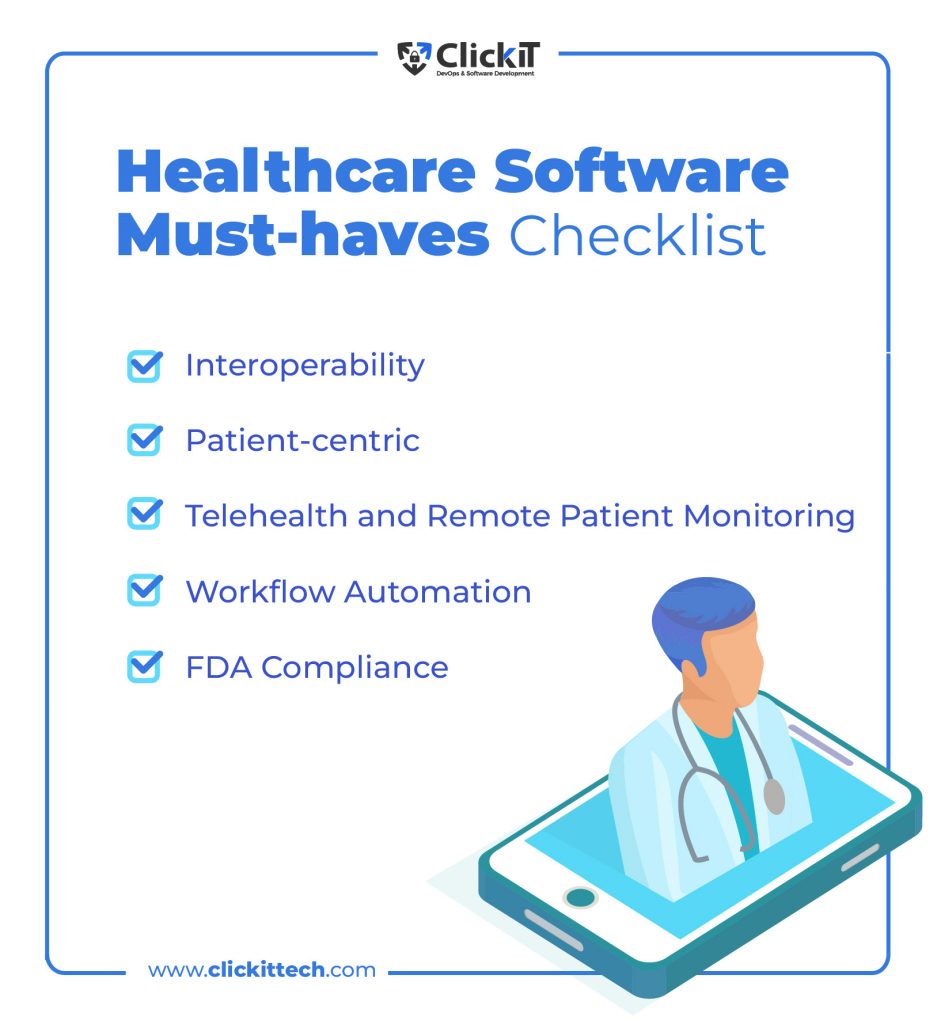
Interoperability
This feature refers to the ability of healthcare software companies and applications to exchange and use data across different platforms and settings seamlessly. With it, efficient and secure sharing of patient information between healthcare providers is guaranteed.
Interoperability not only improves care coordination and reduces errors. What’s more, it allows healthcare software developers to integrate projects with other systems like EHRs and medical devices.
Platforms with this characteristic have a bigger chance of avoiding duplication of tests and procedures, leading to cost savings and improved efficiency in delivery.
Patient-centric
Healthcare software companies with this attribute focus on placing the patient at the center of care.
Patient-centric projects improve patient satisfaction, involving them in their care decisions and empowering them with access to their health data and tools. Furthermore, this approach promotes personalized medicine by tailoring treatments and interventions to individual patients’ specific needs and preferences.
Incorporating this mindset facilitates collaboration between patients and healthcare providers too. In the end, it fosters a strong partnership and shared decision-making.
Telehealth and Remote Patient Monitoring
We all became aware of telehealth and remote monitoring during the pandemic, and it has now established itself as an essential trait to healthcare software development companies.
Through it, virtual consultations become a reality, allowing patients to access healthcare services remotely. This is an especially significant factor for individuals in remote or underserved areas.
Telehealth and remote patient monitoring facilitate continuous monitoring of patients’ vital signs and recovery progress, promoting early intervention and timely care.
Workflow Automation
You may have guessed with the name, as workflow automation involves automating manual and repetitive tasks in healthcare processes, reducing administrative burdens.
With these systems, healthcare software developers gave healthcare providers a chance to focus more on patients instead of administrative tasks. In addition, workflow automation enhances coordination among medical teams, improving timely access to information.
FDA Compliance
All healthcare-related products must pay close attention to this one, as its omission will most likely bring enterprises into big trouble.
The Food and Drug Administration regulates the safety of all medical products prior to their appearance in the market. It is crucial for healthcare software involving medical devices, diagnostics, or any functionality under regulatory oversight.
Compliance with FDA regulations enhances trust among healthcare providers and patients; it signifies that products meet rigorous standards for quality and safety.
Healthcare software development companies must work on carefully navigating the regulatory landscape to avoid any legal or reputational risks.
Steps for Healthcare Software Development
Developing healthcare software requires a well-defined and systematic approach that ensures a successful outcome. The following steps will help you can navigate the development process effectively.
- Planning: Define the Problem and Scope
- Analysis: Conduct Market Research
- Design: User Interface and User Experience
- Software Development: On to Work
- Testing: Quality Assurance
- Deployment: Launch the Software
- Maintaining: Ongoing Support and Updates
Now, enough preparing; let’s get our hands a bit dirty!
Planning: Define the Problem and Scope
For the planning phase, defining the problem, you aim to solve, and the scope of the healthcare software is crucial for your agency. Consider the following actions:
- Identify the specific healthcare challenge or need your software will address. Are you trying to streamline patient data management? Maybe improve medication adherence? This should be clear before going any further; it is the birth of your project.
- Determine the scope of your software. Outline its features, functionalities, and target audience. Consider scalability, integration with existing systems, and regulatory requirements.
- Set clear goals and objectives for your healthcare software development company. Examples could be enhancing patient outcomes, improving operational efficiency, or increasing patient engagement.
Analysis: Conduct Market Research
Healthcare software developers must gain insights into the landscape, understand user needs, and identify potential competitors.
- Research the current healthcare software solutions in the market. Identify their strengths, weaknesses, and gaps your software can address.
- Conduct surveys, interviews, or focus groups with healthcare professionals and potential end-users. Try to gather requirements and understand pain points from those results and survey reports.
- Explore regulatory requirements and compliance standards specific to healthcare software. Remember the FDA? Well, now it’s time to familiarize yourself with it. Check regulations like HIPAA to guarantee your software meets the standards.
Design: User Interface and User Experience
Serious healthcare software developers never underestimate design. It plays a vital role in creating a user-friendly, intuitive healthcare software solution. Here are some actions you can take:
- Develop user personas based on your target audience. Identify their needs, preferences, and challenges. We are designing software that caters to their requirements.
- Create wireframes or prototypes. Use them to visualize the software’s layout, navigation, and interactions. Modify these designs based on feedback and usability testing.
- Pay attention to user interface design. Ensuring it is visually appealing, intuitive, and accessible to all users.
- Collaborate with healthcare professionals and UX designers to create workflows that align with clinical processes, enhancing user efficiency.
Healthcare Software Development: On to Work
With planning, analysis, and design in place, we can embark on the development phase of your application.
- Select the appropriate technology stack and development tools. Align them with your software requirements and scalability needs.
- Break down the development process into smaller tasks or sprints. Establish a development timeline and milestones.
- Write clean and efficient code. Follow coding best practices and implement features and functionalities that align with the defined scope.
- Integrate necessary APIs or third-party services that add value to your healthcare software. Try with EHRs or medical device interfaces.
- Document your code and ensure proper version control. This facilitates collaboration among developers and future maintenance.
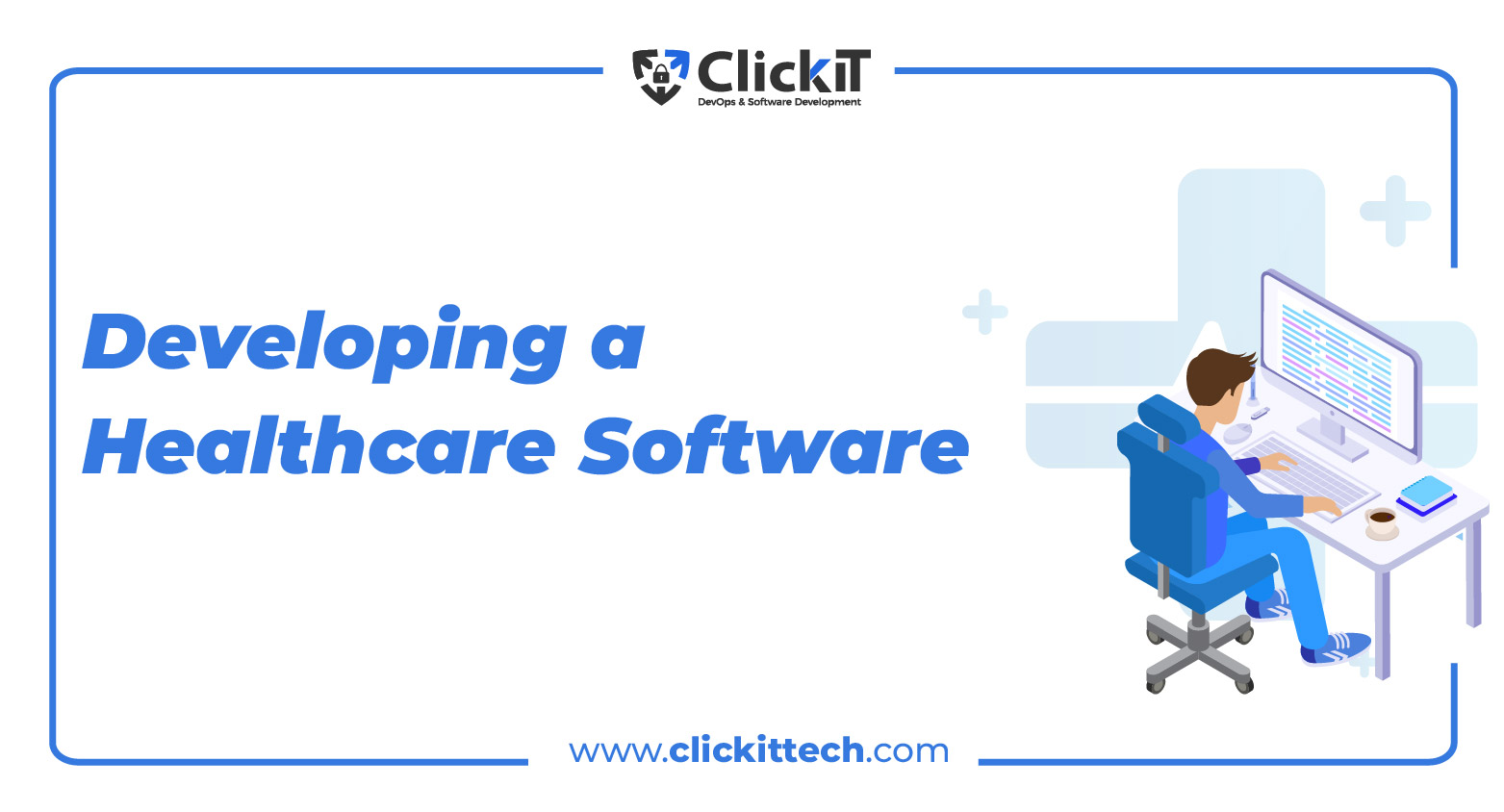
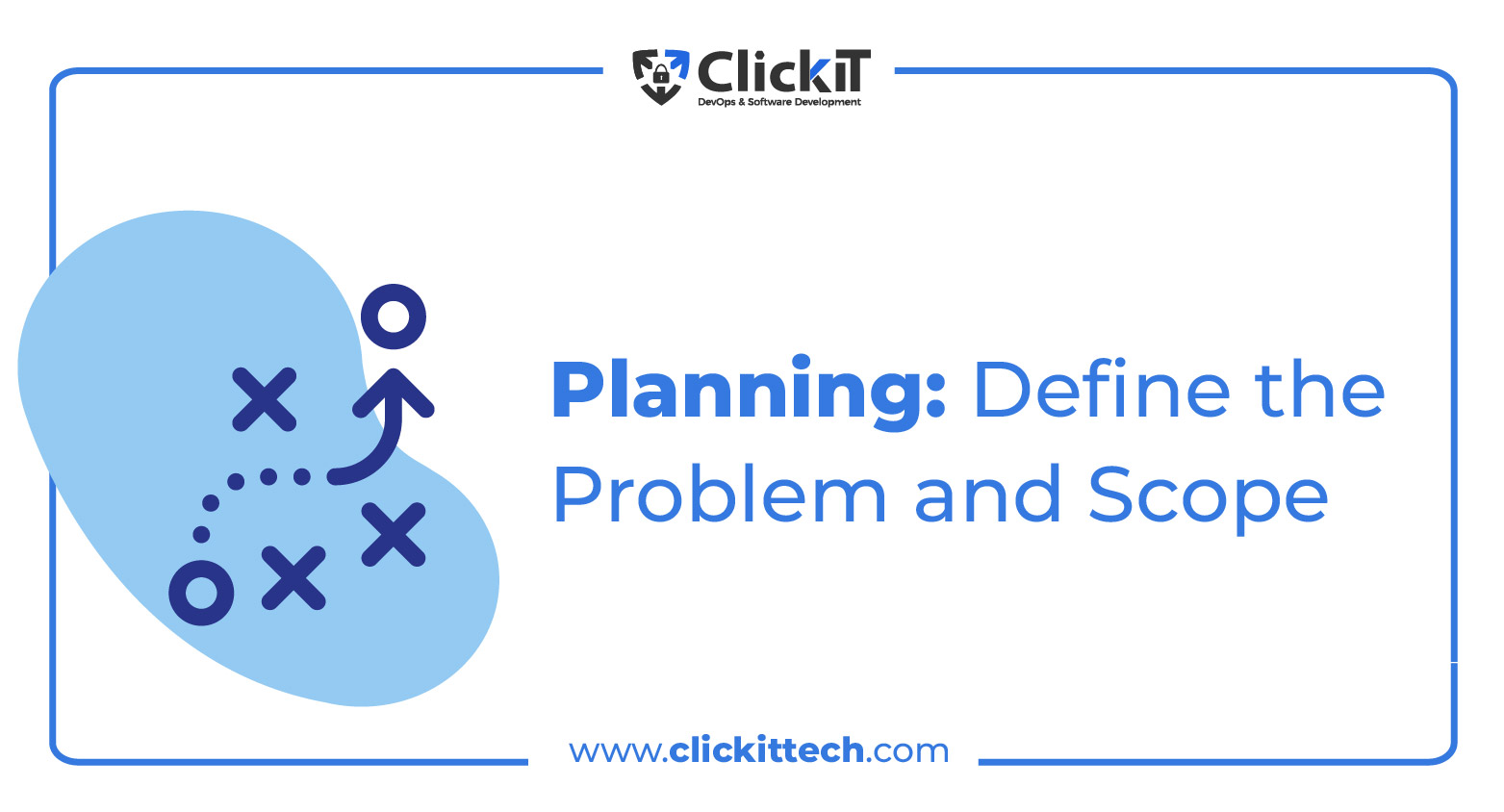
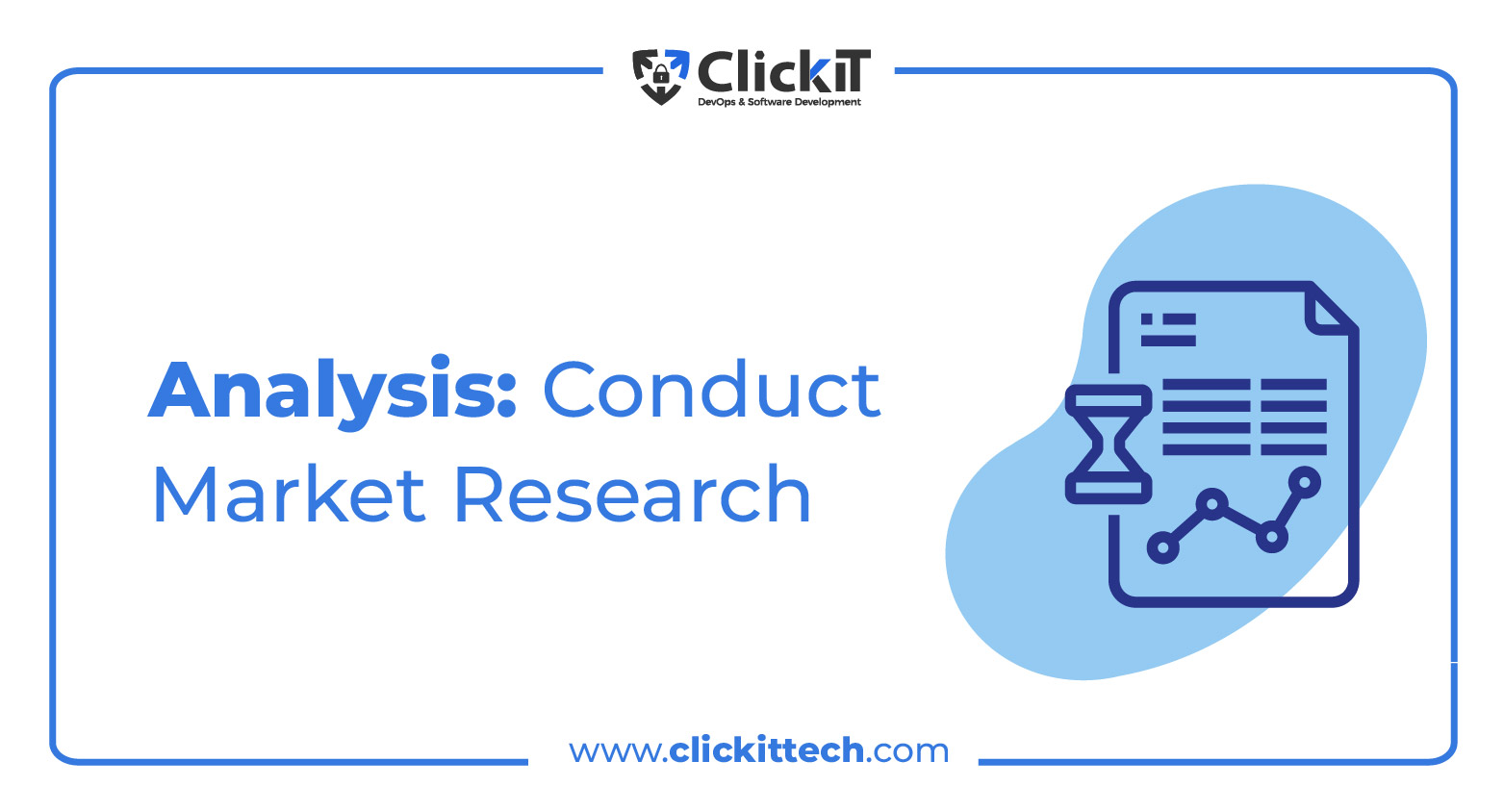
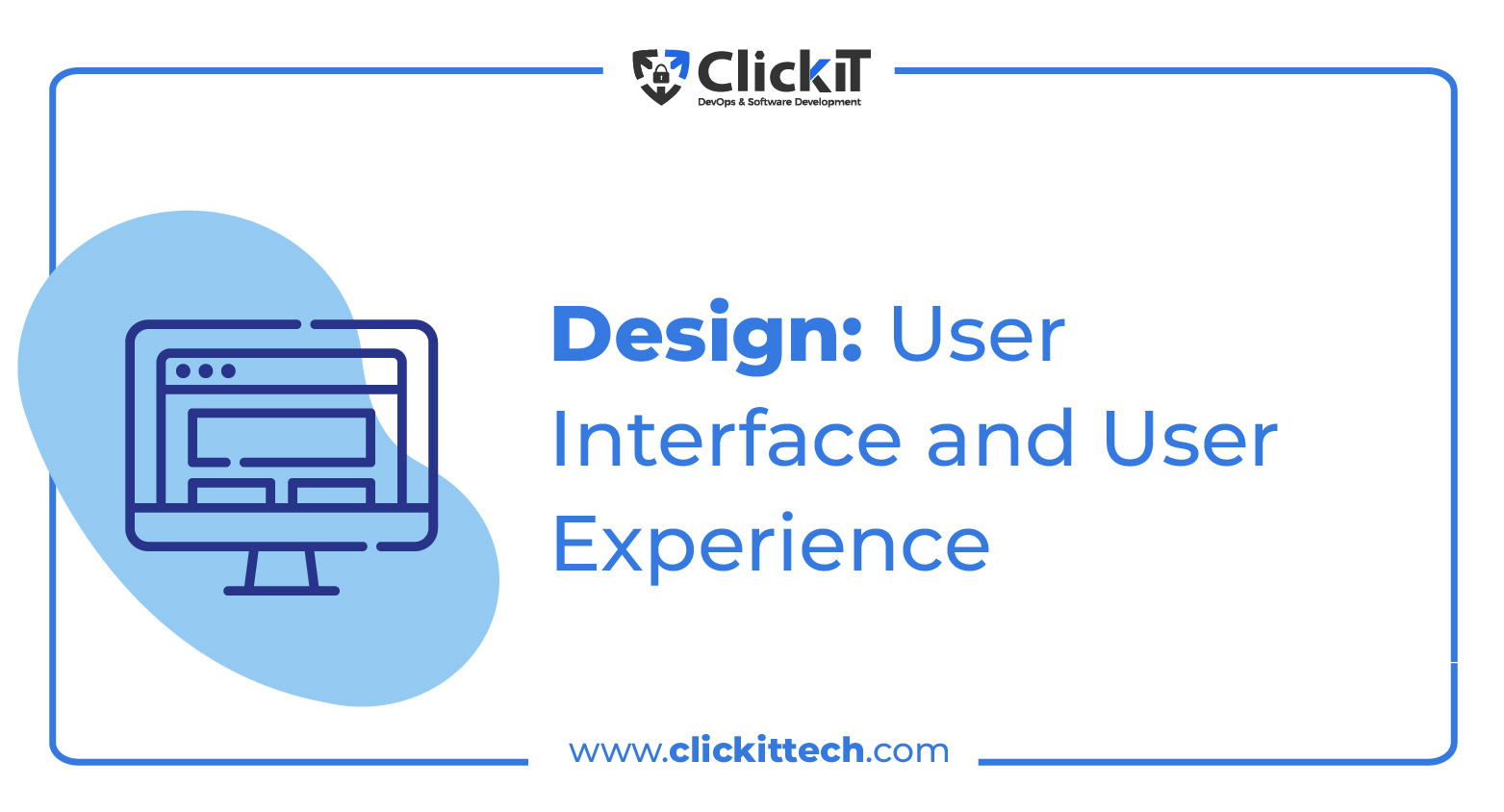
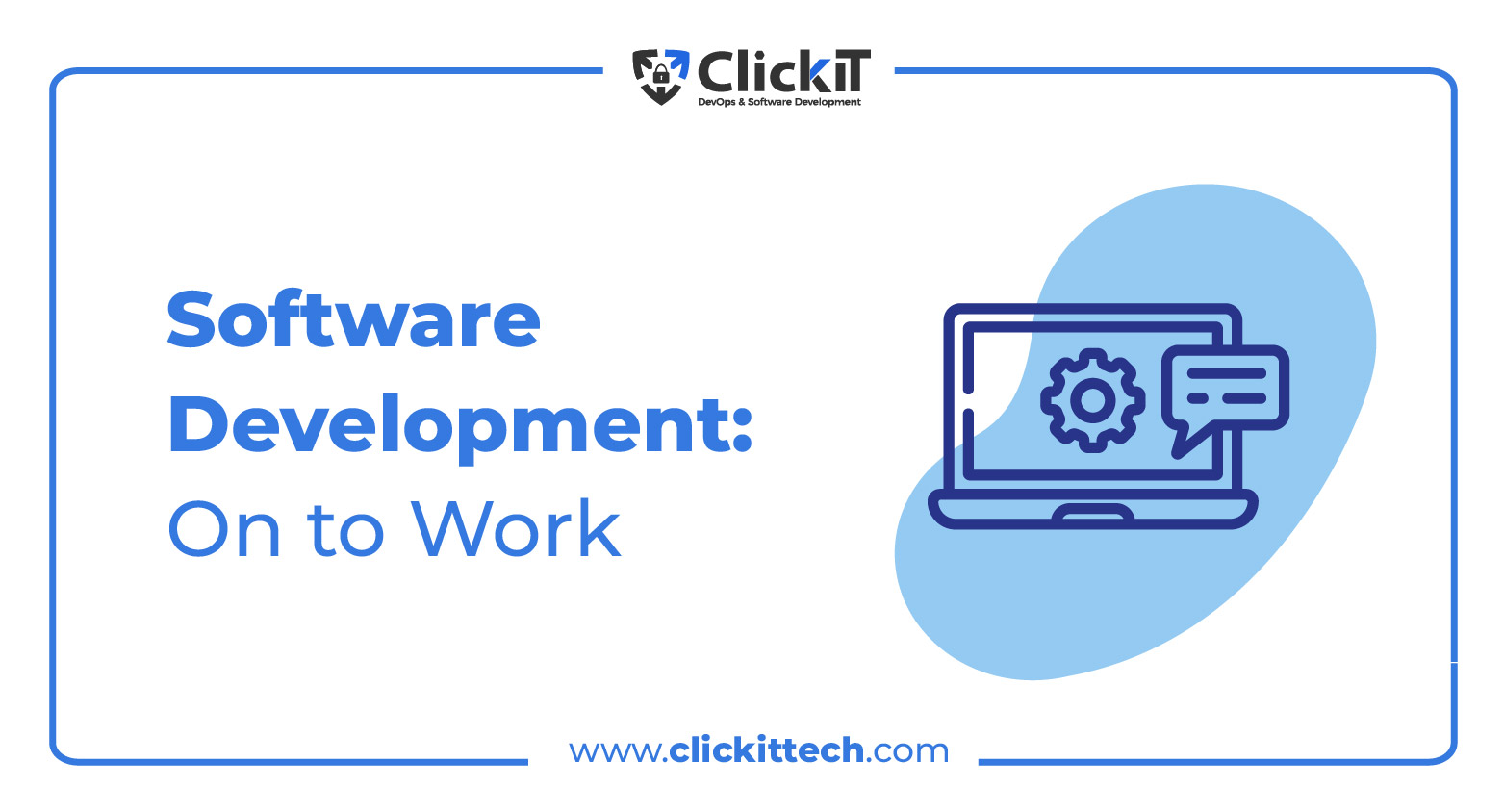
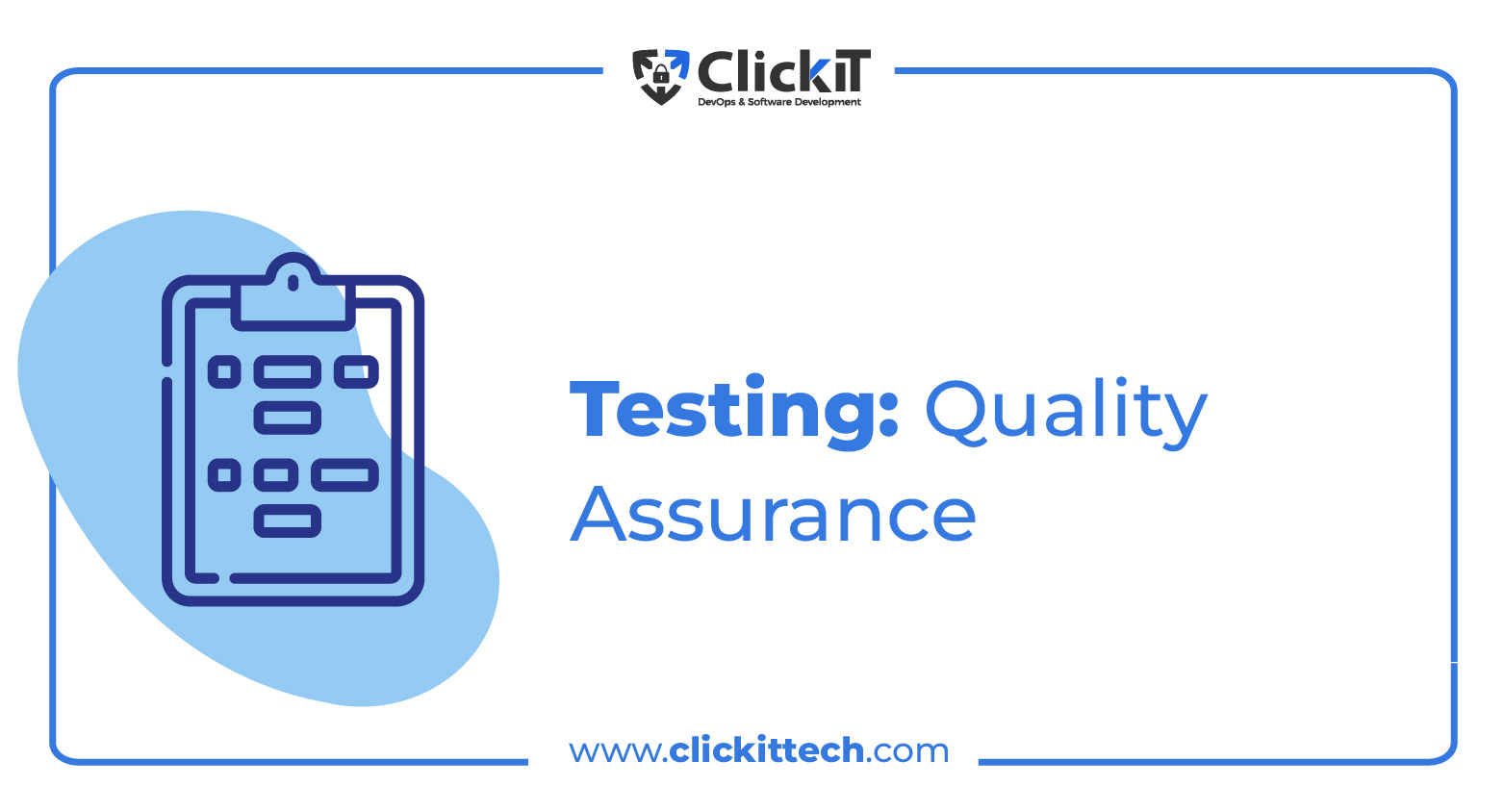
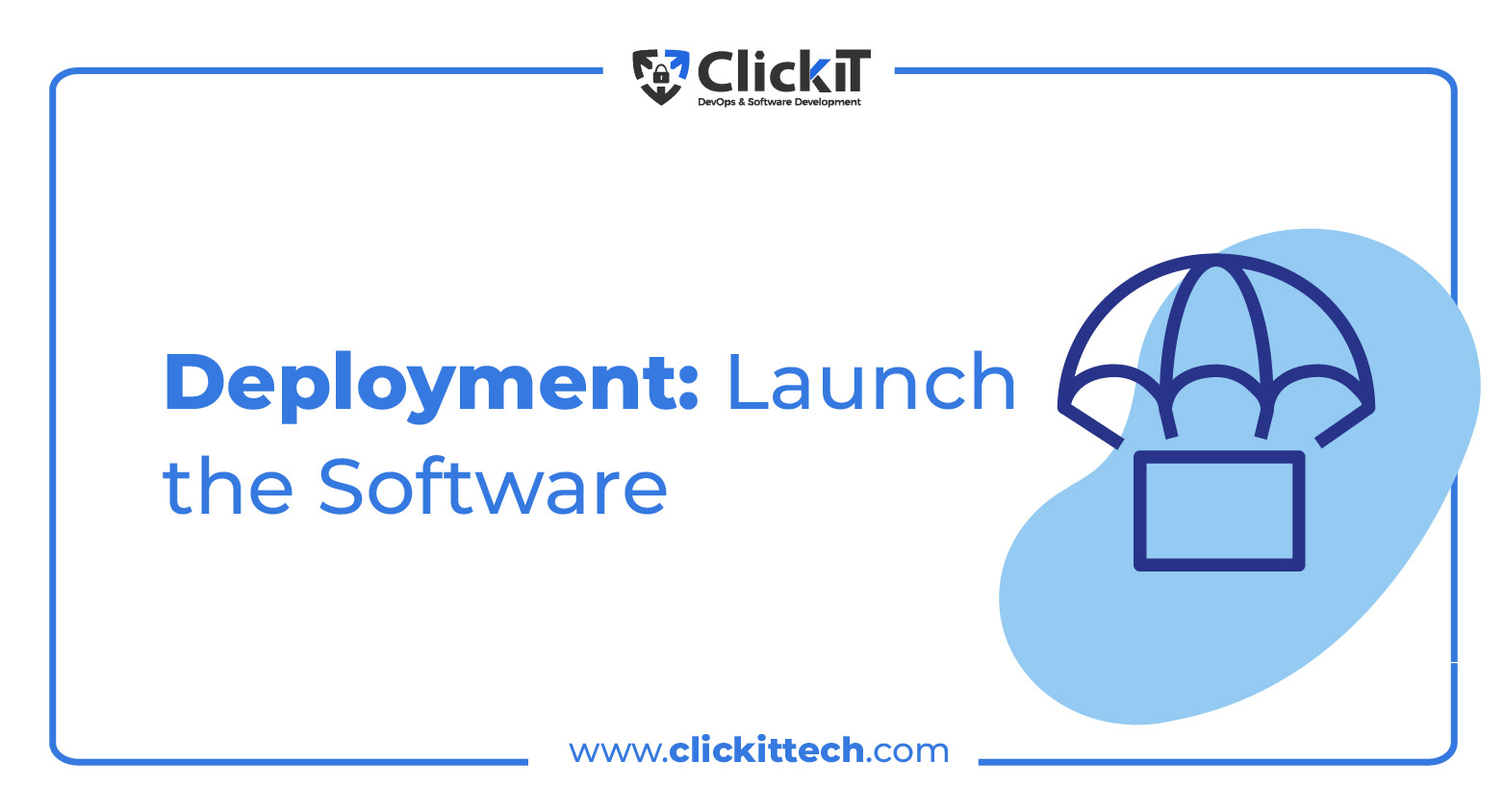
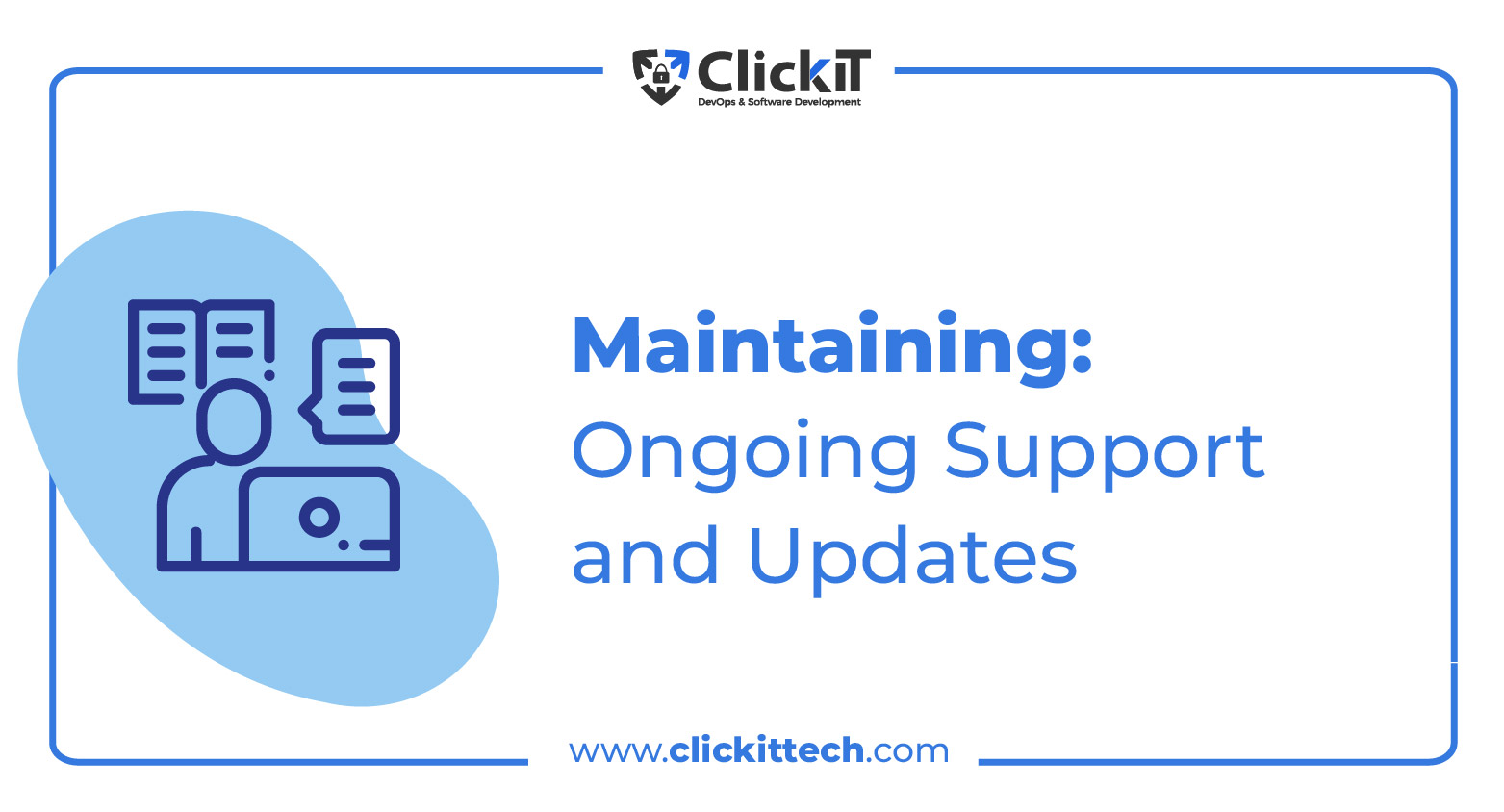
Testing: Quality Assurance of the healthcare software development functions
Testing ensures your healthcare software functions as intended, is secure, and provides a seamless user experience.
- Conduct functional testing. Verify that all features and functionalities work as expected. Test different user scenarios and edge cases to identify and fix any issues.
- Perform compatibility testing across various devices, operating systems, and web browsers. Healthcare software developers need to ensure a consistent experience for users.
- Implement rigorous security testing. This will help you identify vulnerabilities and ensure compliance with data protection regulations.
- Conduct usability testing with representative users. Gather their feedback on the software’s intuitiveness, ease of use, and performance. Then, make necessary improvements based on the findings.
Deployment: Launch the Software
After thorough testing, a healthcare software development agency can prepare for the software’s launch and deployment.
- Healthcare software developers will configure servers, databases, and the necessary infrastructure to host the software.
- Conduct a final round of testing. Make sure all components function correctly, and the software is ready for production use.
- Subsequently, create user accounts. Establish user roles and permissions, and confirm the software’s security measures are in place.
- Deploy the software to the target environment. It should be accessible to authorized users.
Maintaining: Ongoing Support and Updates
Even after the software is deployed, the journey doesn’t end. Ongoing support and maintenance are essential for the long-term success of your healthcare software development company.
- Provide prompt technical support to address user inquiries, issues, and feedback.
- Continuously monitor the software’s performance. Apply updates, patches, and bug fixes as necessary.
- Stay informed about regulatory changes and updates that may affect your software. Update as needed.
- Regularly gather user feedback. With this information, you’ll identify areas for improvement and new features that can enhance the software’s functionality and user experience.
Read our blog, Future of Software Development, to learn more trends in this area.
ClickIT’s Expert Experience in Healthcare Software Development
Now that we’ve almost reached the end of our blog, it is time to release the greatest piece of advice for any healthcare software development agency in the making.
Seek to collaborate with a DevOps and Software Development provider like ClickIT. Trust me on this one; we will make your process a hundred times easier and deliver the greatest possible results.
In addition, ClickIT specializes in supplying end-to-end software solutions that build secure, high-quality applications.
Our A-Player team has vast and enriching experience working on diverse healthcare software solutions. We are a team of pro healthcare software developers ready to provide the best services in the market. Furthermore, our success stories speak for themselves!
For example, one of our most recent projects implied working hand in hand with the inspiring team behind Ultrasound AI. As an innovative healthcare product, the platform required characteristics like security, user interaction design, data quality, and more. Luckily, ClickIT’s top development team rose to the task and received an excellent review from the satisfied client.
Call us if you are ready to bring the healthcare software development service of your dreams to life. Our sales representatives are more than prepared to hear from you.
Healthcare Software Development Conclusion
Healthcare software development is a world filled with adventure and knowledge to discover. That’s precisely why we congratulate all healthcare software development companies that are willing to work hard for better medical services.
We hope our shared tips, trends, and information nurture your development process. Remember to have clear goals and keep them in mind at all times. As a result, they will guide you through the twists and turns this road may have ahead.
Lastly, with dedication and hard work, you’ll create a robust and valuable healthcare software development service that positively impacts patient care and healthcare outcomes.

Healthcare Software Development FAQs
Apps, platforms, or systems that address the unique challenges of healthcare providers and patients.
The software development life cycle of a healthcare solution is a process that guarantees the proper functioning of the service. It includes steps like planning, analysis, designing, software development, testing, deployment, and maintenance.
EHRs are probably the most popular healthcare software development service available. They were one of the first to be implemented in the market. EHRs allow hospitals to digitally store, manage, and exchange patient medical records.
A healthcare software developer designs and creates specialized software solutions tailored to the medical industry or a healthcare software development agency. They collaborate with healthcare professionals to develop innovative applications that streamline patient care, manage medical records, enhance diagnostic accuracy, and improve overall healthcare operations.

